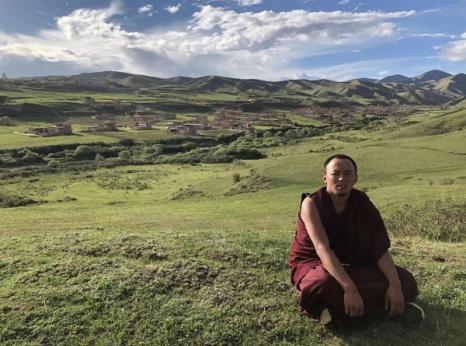China: Tibetan monk held incommunicado for 2 years

Rinchen Tsultrim, age 29, was a monk at the Nangshig monastery in the Aba Tibetan Autonomous Prefecture of Sichuan Province. After a wave of Tibetan unrest in 2008, he began expressing his views through WeChat and a personal website titled “Scepticism on Tibet” (in Tibetan). In 2018, the local public security bureau twice warned him to stop expressing opinions critical of Chinese policies online. He was closely monitored, and his personal website was shut down.
Rinchen Tsultrim was arrested on 1 August 2019. In March 2020 his family received official information that he was suspected of “inciting separatism”. The Aba Tibetan and Qiang Autonomous Prefecture Public Security Bureau informed his family in March 2021 that he was in a prison in Chengdu without further information. His family was aware of his trial, crime and whereabouts only after the Chinese authorities’ response to a letter from four UN human rights experts was publicized. Severe and wide-ranging restrictions on and repression of ethnic minorities has been carried out under the pretence of “anti-separatism”, “anti-extremism” and “counter-terrorism” in Tibetan-populated areas and the Xinjiang Uyghur Autonomous Region (Xinjiang). Access to and from Tibetan-populated areas remains highly restricted, particularly for journalists, academics and human rights organizations, making it extremely difficult to investigate and document the human rights situation in the region.
In June 2020, 50 independent UN human rights experts strongly criticized China for the repression of religious and ethnic minorities in Xinjiang and Tibet, among others. On 6 October 2020, 39 UN member states issued a joint statement expressing grave concerns about the human rights situation in Tibet, Xinjiang and other regions. 44 UN member states issued another joint statement expressing the same grave concerns on 21 June 2021.
Regulations, effective as of 1 February 2020, stipulated that religious groups must “follow the leadership of the Communist Party of China… persist in the direction of sinicization of religion, and practise core socialist values”. The government seeks to bring religious teachings and practices in line with state ideology and to comprehensively strengthen control over both state-approved and unregistered religious groups. Reports have documented the destruction of thousands of cultural and religious sites in recent years, particularly in the north-west of China. The state’s repression of religion in Xinjiang and Tibet remains severe. People continue to be arbitrarily detained for ordinary religious practices.